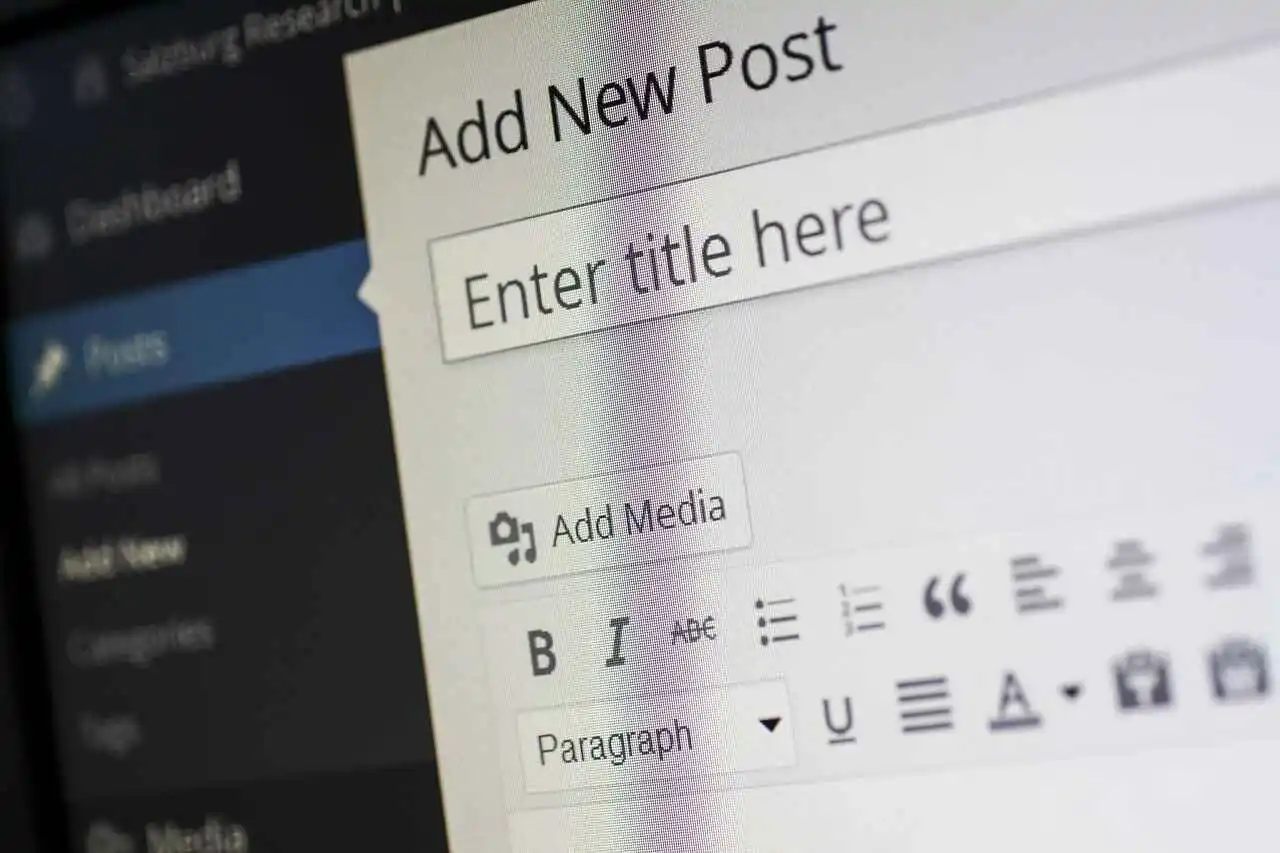
In this article, we explore the transformative impact of AI on digital marketing, highlighting key trends and insights that can revolutionize your content strategy. Discover how AI-powered tools are reshaping the way businesses create, distribute, and optimize digital content, leading to unparalleled results in the competitive online landscape.
- AI-driven content creation revolutionizing digital marketing
- Enhancing digital content strategy with AI insights
- The power of AI tools for online digital marketing success
- Unlocking new possibilities with AI-powered content optimization
- Automation of Common Marketing Workflows
As a Content Maverick, you understand the importance of staying ahead of the curve in digital marketing. In this article, we delve into the world of AI and its profound impact on shaping the future of digital marketing strategies. Join us as we explore the latest trends and insights that can elevate your content game and drive unparalleled success in the online landscape.
AI-driven Content Creation: Revolutionizing Digital Marketing
One of the most significant advantages of AI-driven content creation is its ability to analyze vast amounts of data and identify patterns that humans might miss. This enables AI-powered tools to generate content that is not only high-quality but also data-driven, ensuring that it resonates with the target audience. For instance, AI can analyze customer reviews, social media conversations, and search queries to create content that addresses the most pressing concerns and interests of the target audience, thereby increasing engagement and conversion rates.
Moreover, AI-driven content creation enables businesses to maintain a consistent brand voice across all channels and touchpoints. By leveraging AI-powered tools, marketers can ensure that their content is aligned with their brand's tone, style, and messaging, regardless of the format or platform. This consistency is critical in building trust and credibility with the target audience, ultimately leading to brand loyalty and advocacy.
Another significant benefit of AI-driven content creation is its ability to facilitate real-time content optimization. With AI-powered tools, businesses can analyze user behavior, track engagement metrics, and adjust their content strategy in real-time to maximize its impact. This enables marketers to respond quickly to changes in the market, capitalize on trends, and stay ahead of the competition. By leveraging AI for content creation, businesses can create a data-driven content strategy that drives real results and fuels growth.
Enhancing Digital Content Strategy with AI Insights
One of the most significant advantages of AI insights in digital content strategy is the ability to predict user behavior. By analyzing vast amounts of data, AI algorithms can identify patterns and trends that human analysts might miss, providing businesses with a competitive edge in the market. For instance, AI-powered tools can predict which topics or formats will resonate with a specific audience, enabling businesses to create content that is more likely to engage and convert. Furthermore, AI insights can help businesses identify and address content gaps, ensuring that their digital content strategy is comprehensive and effective.
By analyzing user behavior and preferences, AI algorithms can identify areas where businesses are lacking in terms of content, and provide recommendations for creating content that fills those gaps. This can be particularly useful for businesses looking to expand into new markets or target new audience segments. The use of AI insights in digital content strategy also enables businesses to measure and optimize their content's performance in real-time. With AI-powered analytics, businesses can track key metrics such as engagement rates, conversion rates, and customer lifetime value, and make data-driven decisions to optimize their content strategy.
This can lead to significant improvements in ROI, as businesses are able to allocate their resources more effectively and make the most of their digital content.
The Power of AI Tools for Online Digital Marketing Success
One of the most significant advantages of AI tools in digital marketing is their ability to analyze vast amounts of data quickly and accurately. This enables marketers to gain actionable insights that inform their strategy, rather than relying on gut feelings or anecdotal evidence. With AI-powered analytics, businesses can track key performance indicators, identify areas for improvement, and refine their approach to maximize ROI.
AI tools are also revolutionizing the way businesses create and distribute content. By automating tasks such as content generation, curation, and optimization, marketers can focus on higher-level creative decisions and strategy. Additionally, AI-powered content recommendation engines can help personalize the customer experience, increasing engagement and driving conversions. This level of precision and efficiency is unprecedented in digital marketing, and businesses that adopt AI tools are reaping the rewards.
Another critical aspect of AI tools in digital marketing is their ability to facilitate real-time optimization. With the help of machine learning algorithms, businesses can continuously monitor and adjust their campaigns to respond to changing market conditions, customer behavior, and competitor activity. This agility is essential in today's fast-paced digital landscape, where adaptability and responsiveness are key to staying ahead of the competition. By leveraging AI tools, businesses can stay nimble and responsive, driving better results and maximizing their online presence.
Unlocking New Possibilities with AI-powered Content Optimization
One of the primary benefits of AI-powered content optimization is its ability to analyze vast amounts of data in real-time, providing actionable insights that can inform content strategy. By leveraging AI algorithms, businesses can identify patterns and trends in user behavior, preferences, and pain points, enabling them to create highly targeted and effective content that resonates with their audience. This level of personalization is particularly crucial in today's digital landscape, where consumers are bombarded with countless marketing messages and are increasingly discerning about the content they engage with.
Moreover, AI-powered content optimization tools can help businesses streamline their content creation process, reducing the time and resources required to produce high-quality content. By automating tasks such as content suggestions, keyword research, and optimization, AI algorithms can free up marketers to focus on higher-level creative decisions, such as developing compelling narratives and crafting engaging brand voices. This not only improves the efficiency of the content creation process but also enables businesses to scale their content output without sacrificing quality.
Furthermore, AI-powered content optimization can also facilitate a more data-driven approach to content measurement and evaluation. By providing real-time analytics and performance metrics, AI algorithms can help businesses track the effectiveness of their content and make data-informed decisions about where to allocate their marketing resources. This level of transparency and accountability is critical in today's digital landscape, where marketers are under increasing pressure to demonstrate ROI and justify their marketing spend.
Automation of Common Marketing Workflows
The advent of artificial intelligence (AI) has revolutionized the digital marketing landscape, transforming the way businesses approach marketing, customer engagement, and data analysis. One of the most significant trends in AI-powered digital marketing is the increasing use of machine learning algorithms to analyze customer behavior, preferences, and patterns. This enables marketers to create personalized experiences, tailor-made content, and targeted advertising that resonates with their audience. AI-powered chatbots and virtual assistants are also being used to provide 24/7 customer support, answer frequently asked questions, and help guide users through the purchasing process.
Another significant impact of AI on digital marketing is its ability to automate routine tasks, freeing up marketers to focus on more strategic and creative efforts. AI-powered tools are being used to automate tasks such as data entry, social media scheduling, and email marketing campaigns. Additionally, AI is helping marketers to optimize their advertising campaigns, by analyzing data and making real-time adjustments to improve targeted ad delivery, ad spend, and overall campaign performance. AI is also being used to analyze social media conversations, track brand mentions, and identify trends and sentiment analysis, providing valuable insights for marketers to inform their marketing strategies.
Furthermore, AI is having a significant impact on content creation, with the rise of AI-generated content, such as articles, videos, and social media posts. While AI-generated content can be a game-changer for businesses looking to scale their content efforts, it also raises questions about the role of human creativity and the potential for AI-generated content to be perceived as impersonal or lacking authenticity. Ultimately, AI-powered digital marketing has the potential to transform the way businesses approach marketing, customer engagement, and data analysis, but it also requires marketers to adapt to new technologies, tools, and best practices to stay ahead of the curve.
In Closing
In conclusion, the impact of AI on digital marketing is undeniable, offering unparalleled opportunities for businesses to elevate their content strategies and achieve success in the online landscape. By embracing AI-driven solutions for content creation, strategy, and optimization, businesses can unlock new possibilities, drive engagement, and outperform their competitors. With Media Monk as your guide, you can harness the power of AI and transform your digital marketing efforts into a force to be reckoned with.


